News
Will you go Fish Free this February?
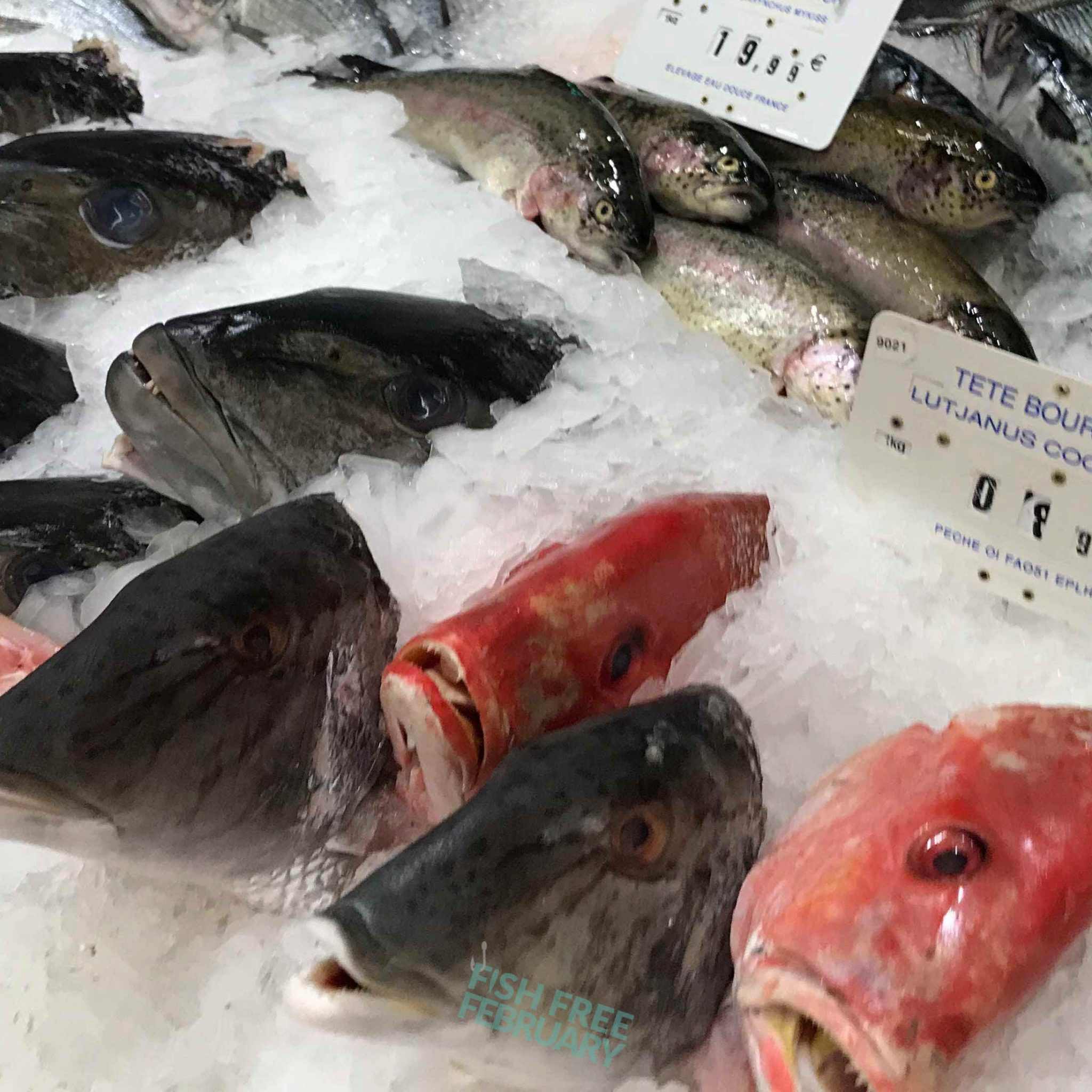
Marine biologist Simon Hilbourne and Oceans Festival UK are launching a new campaign called Fish Free February, challenging the public to protect our oceans by removing seafood from their diet for 29 days.
Fish Free February is a campaign organised by international marine conservationists to reduce our collective impact on the oceans and the life that they hold, in a simple and effective way. Throughout the month of February, #FishFreeFebruary will encourage people to discuss the wide range of issues associated with industrial fishing practices, putting the wellbeing of our oceans at the forefront of dietary decision-making.
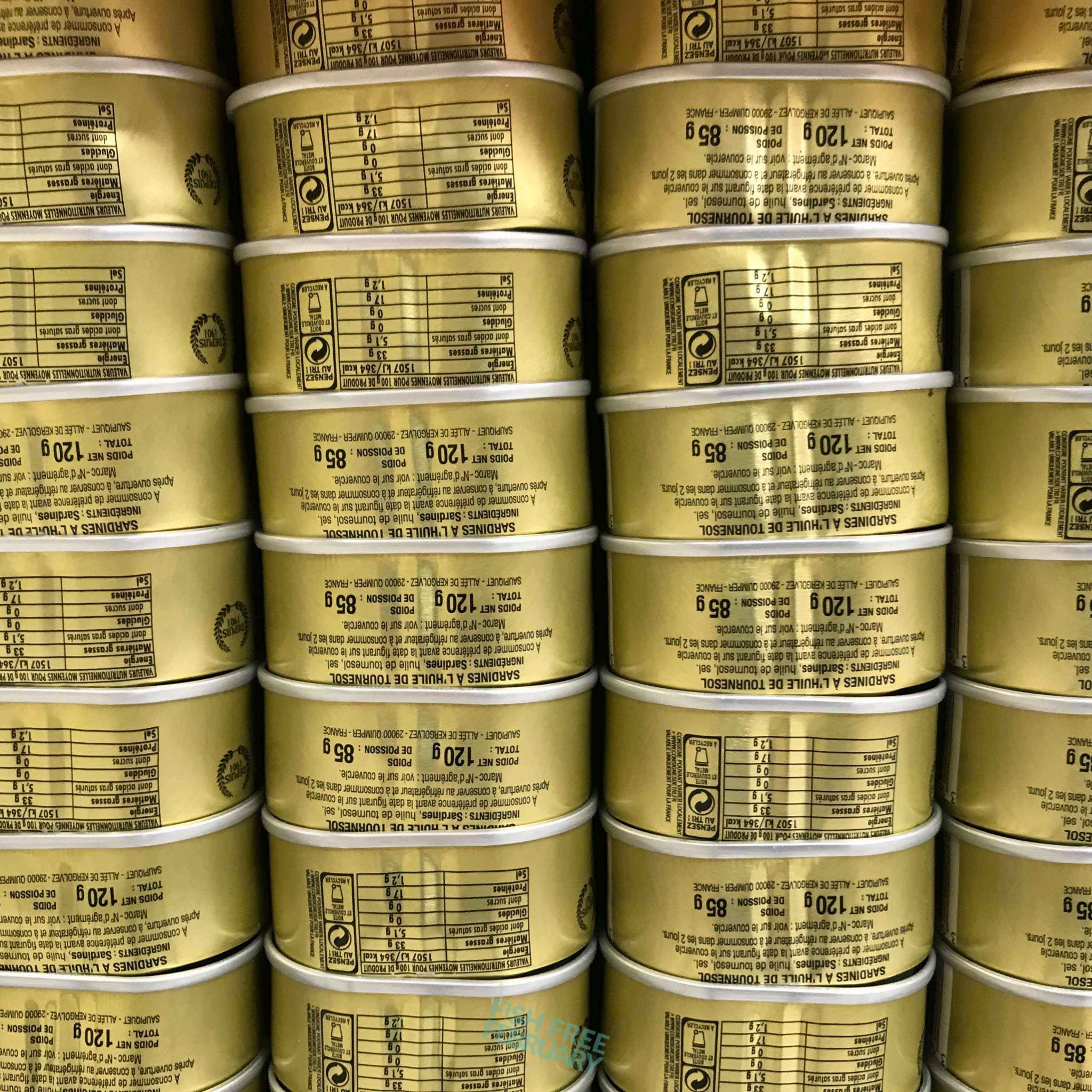
Not all fishing practices are bad – well-managed, small-scale fishing that uses selective fishing gears can be sustainable. However, when it comes to the majority of our seafood, this is not the case. We mostly rely on industrial fisheries which often prioritise profit over the wellbeing of our planet, resulting in multiple environmental challenges. Fish Free February will shed light on these challenges, create wider discussion around these issues, and offer solutions.
So what are the problems with fishing?
Overfishing: We are taking more than our fair share of fish, so much in fact that populations can’t repopulate fast enough. 90% of global fish stocks are fished to their maximum or overfished with an estimated 1-2.7 trillion fish caught annually for human consumption. Compare that to the 63 billion mammals and birds killed each year for food and it becomes clear that there aren’t plenty more fish in the sea.
Plastic pollution: Discarded fishing nets make up 46% of the plastic in the Great Pacific Garbage Patch, far more than plastic bags or straws. This is when fishing gear is abandoned at sea. This might be due to breakages, losing items overboard and in some cases old or broken fishing gear is purposely dumped into the sea. Just because there is not fisherman attached, doesn’t mean those nets, hooks and lines aren’t still lethal. Large pieces of plastic pollution like fishing nets break down into microplastics which are then ingested by marine life. In 2018 a study found 100% of wild and shop-bought mussels to contain plastic.
Destructive fishing practices: Fishing often doesn’t just kill the species that you want to eat, bycatch and non-specific fishing methods (such as dynamite, long lines, trawlers, gill nets and electric pulse nets) mean that other species end up dead as well. Dolphins, sharks, turtles, corals and many other fish species – they’re all caught up in this mess as well.
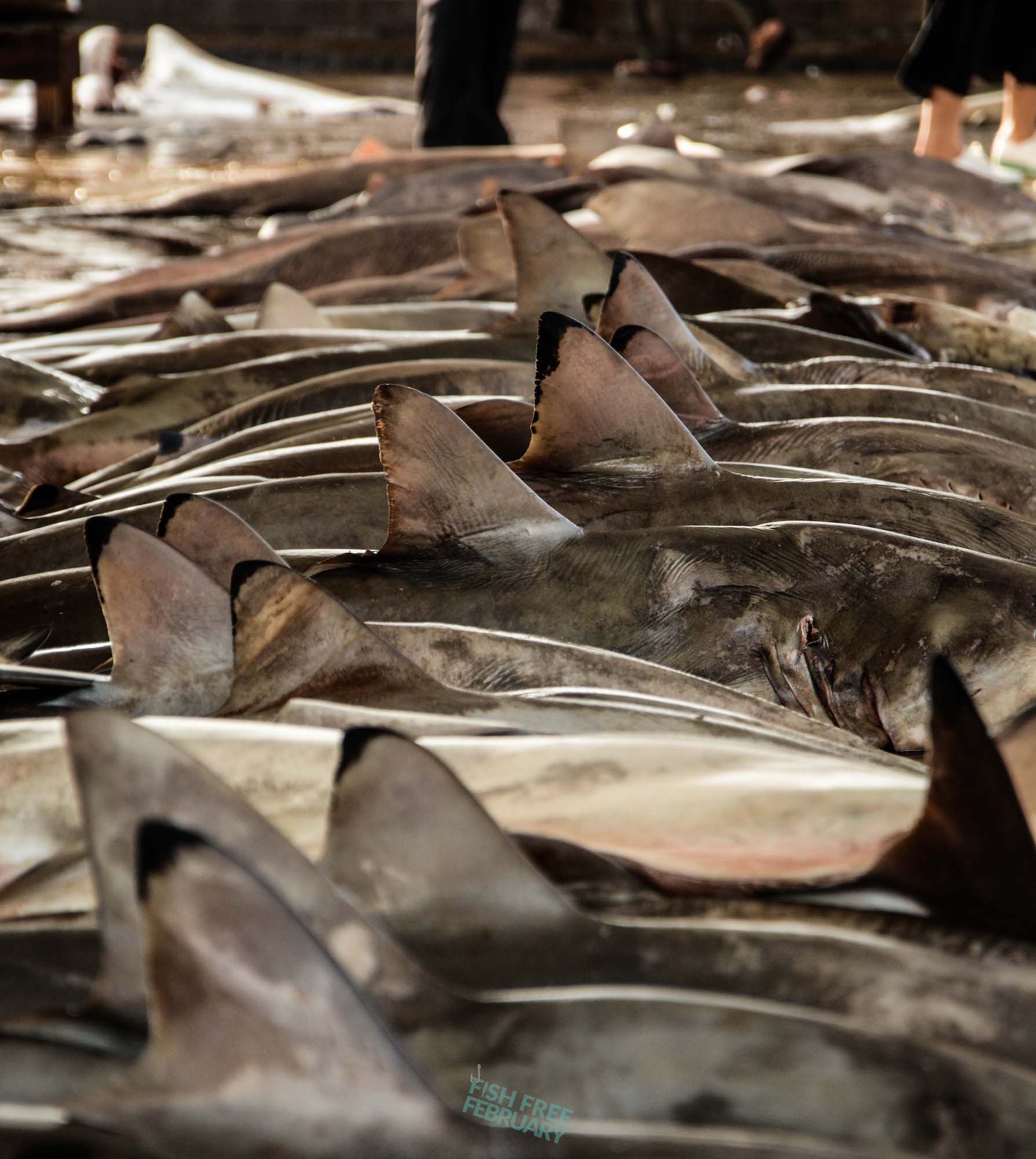
Mislabelling: That’s right, fish isn’t always what it says on the tin. A study by Oceana found that as much as one third of seafood samples in the US were not what they were labelled as in restaurants and stores. This can have huge implications on the environment and also human health, but ultimately it highlights that we need far more stringent regulation and monitoring in this industry.
Farmed fish (aquaculture): 40% of the seafood we eat is farmed, but creating seafood farms often involves destroying existing habitats and therefore has a high carbon footprint. Chemicals and diseases associated with seafood farming also impact the surrounding waters and eventually affect wild populations.
Food waste: The Scottish farmed salmon industry is highly wasteful, with around 20% of fish never reaching harvest due to mortalities and escapes during production, according to its own figures. If this level of waste remains unchecked, a large proportion of the wild fish sourced to feed its salmon is also being wasted.
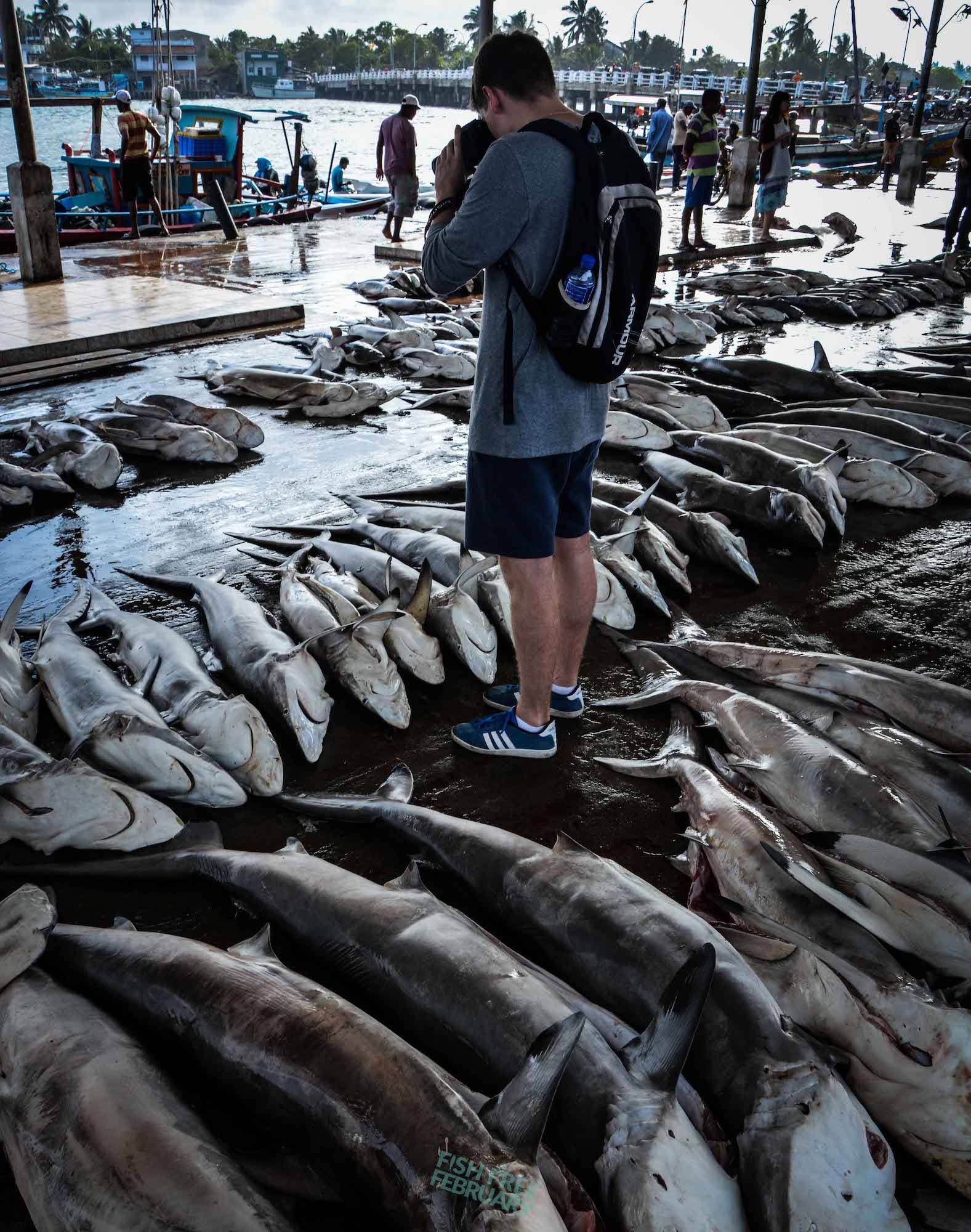
Human rights: In regions of the world such as South-East Asia, forced labour and human trafficking is rife within the fishing industry. It is very possible that the imported fish in our supermarkets has made its way from the sea to the shelves as a result of modern-day slavery.
Illegal fishing: Companies in the fishing industry don’t always follow the rules. As you might imagine, it can be fairly challenging to monitor the high-seas and currently illegal, unregulated and unreported fishing is widespread. This exacerbates the negative impact of all of the issues associated with industrial fishing and means that companies continue their dirty work and there is no justice for our oceans.
How will Fish Free February change any of that?
Fish Free February aims to result in one, or several, of the following outcomes:
Participants will…
- Commit to eradicating seafood from their diet for 29 days and focus on plant-based, sustainable alternative ways of eating.
- Consciously reduce the amount of seafood in their diet to limit the degree of their personal impact. If continuing to consume seafood after February, people are encouraged to purchase items that are certified by an independent sustainable fishing moderator, such as the Marine Stewardship Council. People can also focus on trying to purchase seafood from small-scale, local and sustainable fisheries.
- Increase the discussion surrounding seafood and fishing practices, to increase the level of knowledge in public consciousness.
- Ask questions about where the fish they are being sold or served came from. Holding retailers and restaurants responsible for the products they sell will put pressure on them to source seafood from sustainable fisheries.
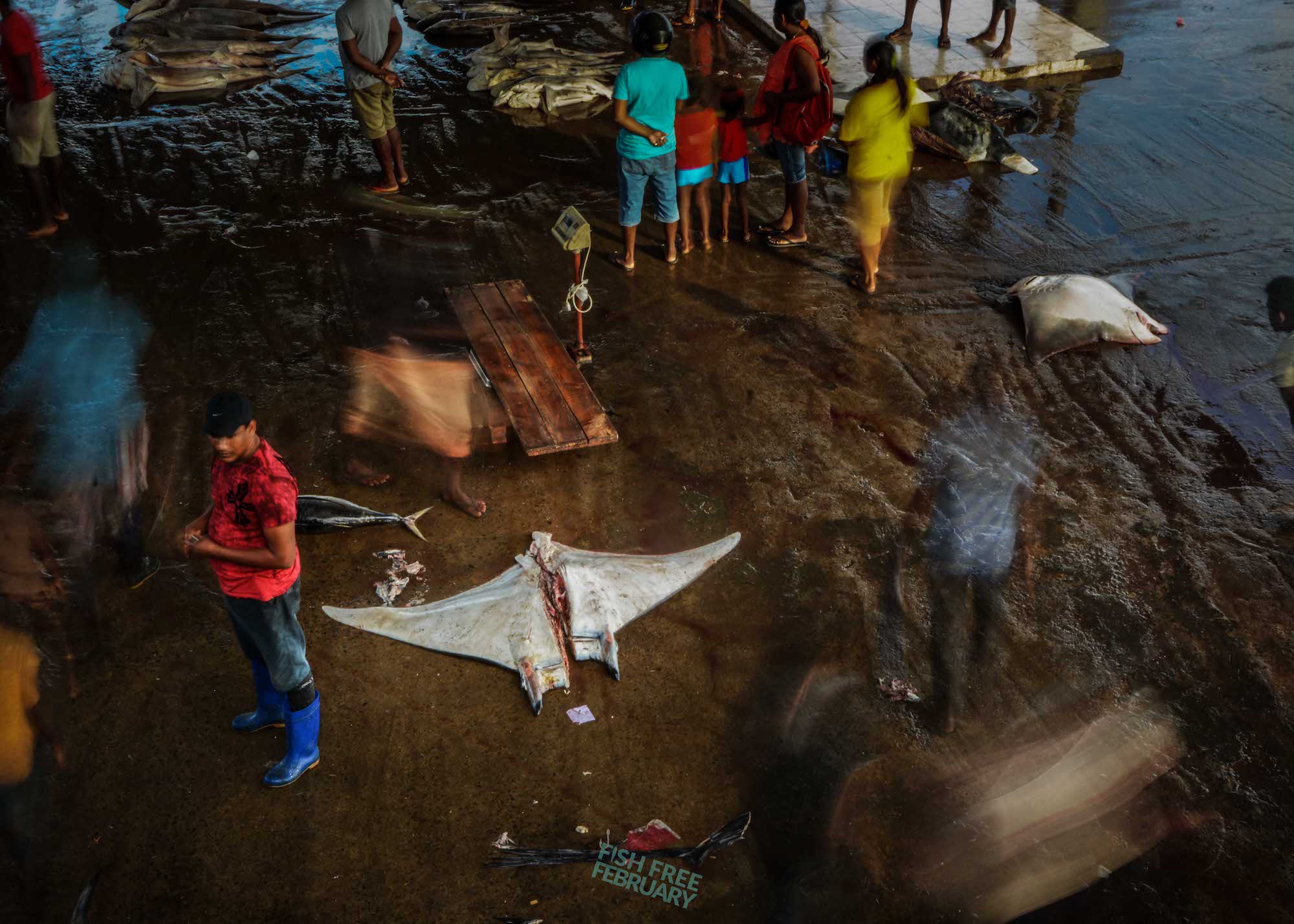
#FishFreeFebruary will send a clear message of protest against current standards of fishing and seafood farming. The ultimate goal is to generate a shift in the fishing industry and encourage a radical reduction in seafood consumption, opting for sustainable practices when fish is purchased. Additionally, Fish Free February will strengthen the connection that the public have with their food and to drive them to thoroughly consider where it has come from and how it has made its way to their plate.
“The fact of the matter is humans are taking far too many fish and other marine species from the sea. We simply must reduce the number of fish being caught. The best way to do that is to stop or greatly reduce eating seafood.” – Simon Hilbourne, Fish Free February Founder.
“We have the opportunity to tackle overfishing, plastic pollution and ecosystem collapse through the very simple act of eating less fish. If you weren’t quite able to commit to Veganuary or want another opportunity to do your part for the planet, please join the Fish Free February challenge!” – Jasmine Tribe, Founder of Oceans Festival UK.
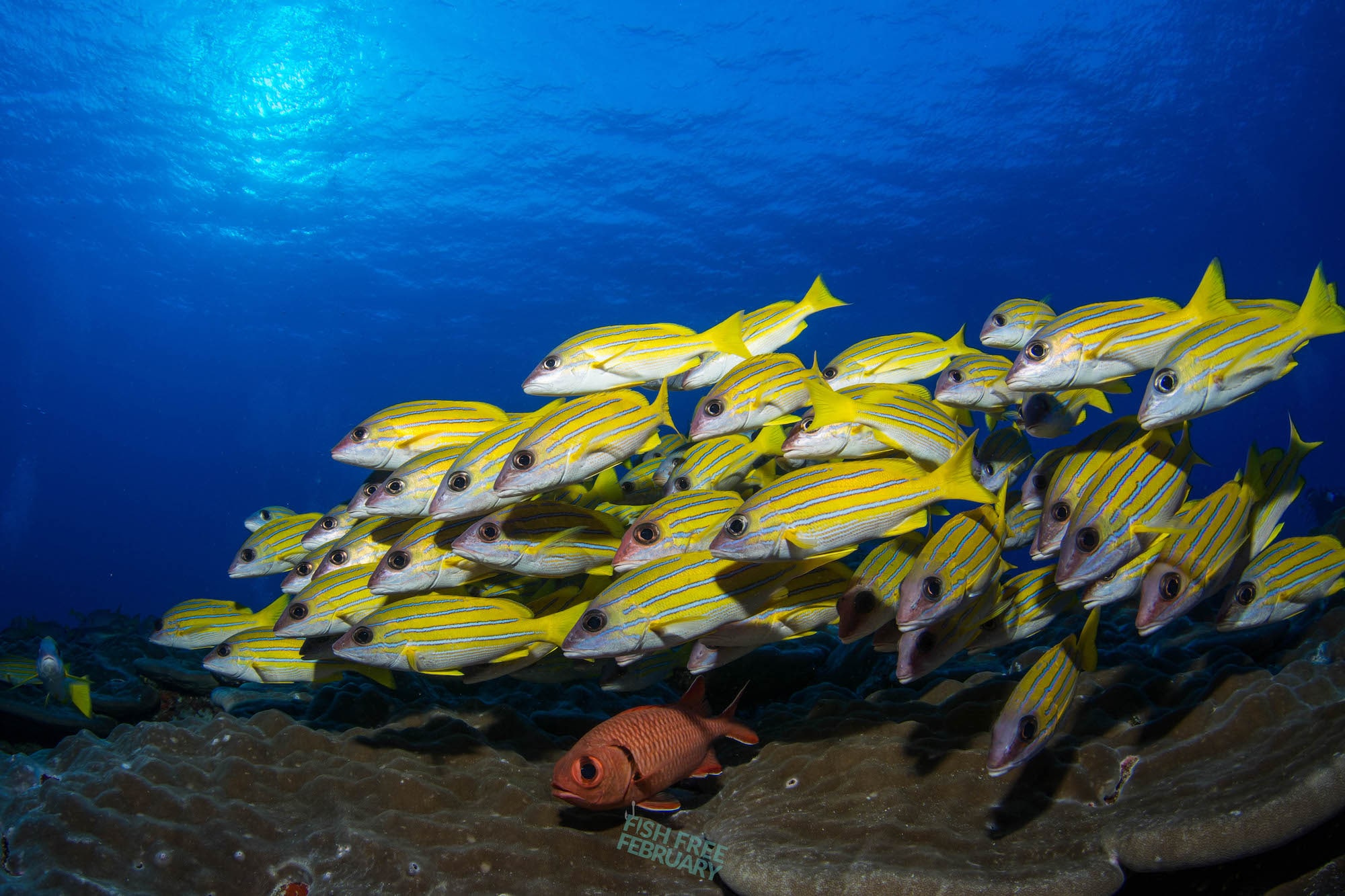
“The ecological balance of our oceans is under huge stress from overfishing and I’ll be championing #FishFreeFebruary to highlight this. With such a vast amount of ocean plastic coming from the fishing industry this is also a great opportunity to highlight the ‘hidden’ plastic pollution in our food chain.” – Natalie Fee, Founder of City to Sea and author of ‘How to Save the World for Free’.
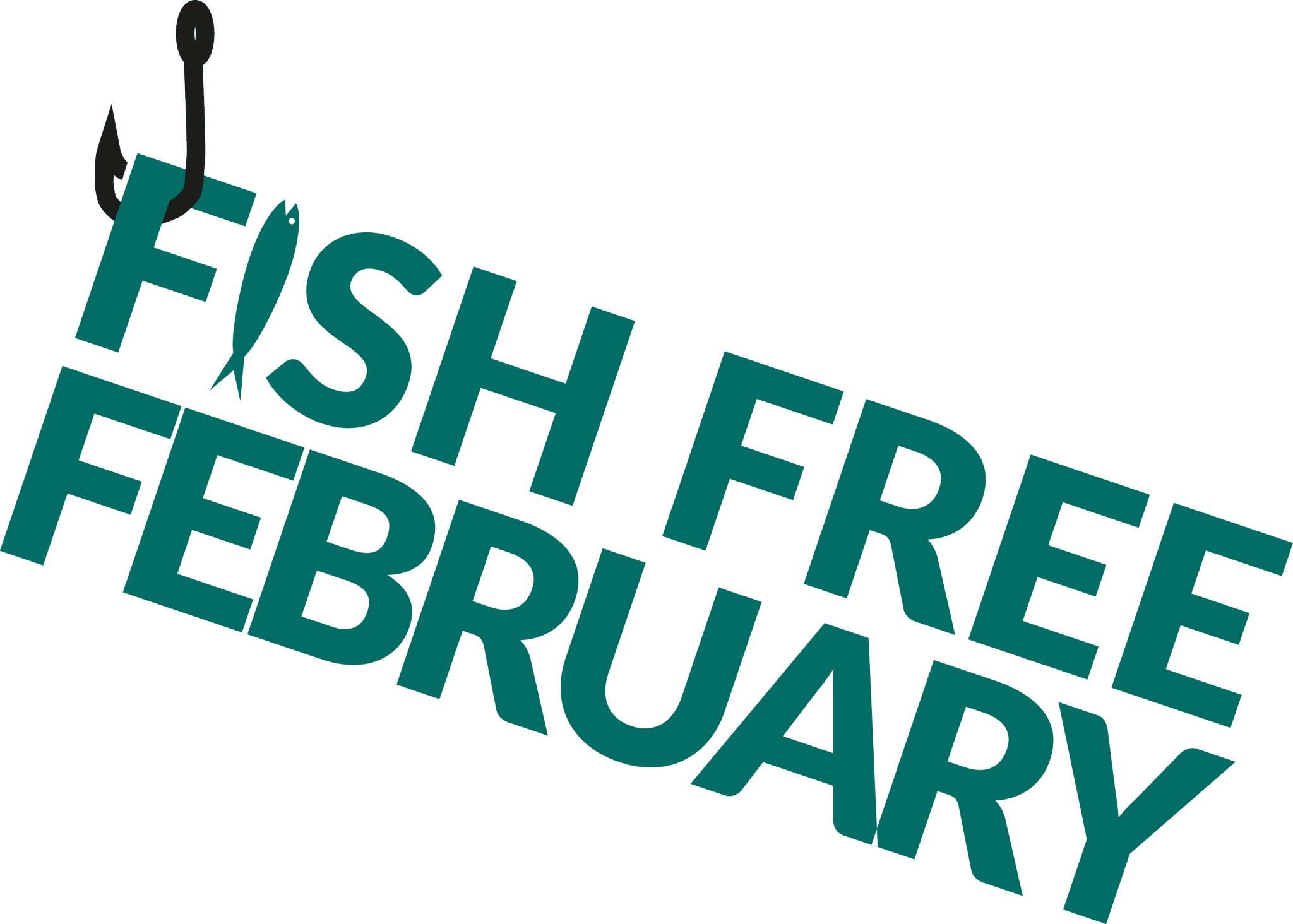 Pledge your support to go Fish Free this February at: www.fishfreefebruary.com/pledge.
Pledge your support to go Fish Free this February at: www.fishfreefebruary.com/pledge.
Images: Simon Hilbourne
Blogs
Discover Curaçao with the Ultimate Dive Vacation Guide – 2024 DEMA Special Edition

Dive Travel Curaçao is thrilled to announce the launch of the Curaçao Dive Vacation Guide – 2024 DEMA Special Edition, an expertly curated resource that unveils the unparalleled dive experiences and vacation possibilities awaiting you in Curaçao. Produced exclusively for the Diving Equipment & Marketing Association (DEMA) Show 2024, this special edition guide is packed with exclusive insights, travel tips, and limited-time DEMA offers that make it easier than ever to explore Curaçao’s stunning underwater landscapes and vibrant culture.
Explore Curaçao’s Unmatched Diving Opportunities
With over 70 diverse dive sites along its southern coastline, Curaçao is a bucket-list destination for divers of all experience levels. From thriving coral reefs and intricate marine ecosystems to historic shipwrecks, the island offers a variety of underwater experiences that are hard to match. The Curaçao Dive Vacation Guide – 2024 DEMA Special Edition provides detailed recommendations for both shore and boat diving, making it a valuable tool for divers seeking the best entry points, pristine reefs, and hidden treasures along the coastline. Whether you are an avid wreck diver, or a beginner interested in shallow reefs, Curaçao has it all.

Uncover Eco-Friendly Dive Resorts and Top Dive Operators
This DEMA 2024-exclusive Curaçao guide goes beyond diving to feature insider information on Curaçao’s eco-friendly accommodations, dive resorts, and top-rated dive operators committed to sustainable dive tourism. From all-inclusive resorts that support coral reef restoration initiatives to charming boutique hotels near prime dive locations, the guide helps travelers find the ideal stay to match their vacation goals. It also spotlights trusted dive operators on the island who prioritize environmental preservation, offering travelers a way to enjoy the underwater world responsibly.

Immerse Yourself in Curaçao’s Culture, Culinary Delights, and Adventure
Curaçao offers a vibrant Caribbean culture rich in history, music, and culinary fusion. The guide reveals Curaçao’s hidden gems, including culinary hotspots, historical sites, and eco-tourism opportunities that will appeal to both divers and non-divers. Visitors can explore the island’s iconic architecture, savor a diverse range of dishes influenced by Caribbean, European, and South American flavors, and embark on land-based eco-adventures, such as hiking, cave exploration, and visiting national parks.

Exclusive DEMA 2024 Specials and Limited-Time Dive Packages
This special edition guide features limited-time DEMA 2024 offers on dive packages, accommodations, and excursions. Travelers who book through Dive Travel Curaçao, or our Curaçao dive travel partners attending DEMA, will have access to exclusive discounts on custom dive vacation packages, making it easier to plan an affordable, high-quality dive trip that fits your preferences. The Curaçao Dive Vacation Guide – 2024 DEMA Special Edition is designed to simplify your travel planning and help you dive deeper into the incredible experiences that Curaçao has to offer.
It’s Time to Dive Curaçao!
Now is the time to discover why Curaçao is a top dive destination in the Caribbean! Dive Travel Curaçao invites you to experience an unforgettable dive vacation with exclusive DEMA 2024 specials tailored just for you. To secure your spot, download a copy of the Curaçao Dive Vacation Guide – 2024 DEMA Special Edition and contact the Dive Travel Curaçao team to start customizing your Caribbean dive adventure today.
For more information and bookings, please visit Dive Curaçao’s website or contact our reservations team directly.

News
Santa Divers take the Plunge for Charity

Ho Ho Ho! Vobster Quay’s recording-breaking charity Santa diving event returns on Sunday 15th December 2024 for another round of festive fundraising frivolities. Run in aid of the Royal National Lifeboat Institution (RNLI) and Help For Heroes, this ever-popular annual fundraising event aims to raise sack-loads of cash for these two very deserving charities.
Divers of all levels are invited to grab their Santa outfits – and as much festive cheer as they can muster – and head down to Vobster Quay near Mells, Somerset for a mass sponsored Santa dive in aid of charity. In previous years, the event has attracted divers from the far corners of the UK to join in the festive merriment for a final festive dive before the Christmas and New Year break. Back in 2015, the event smashed the world record for the most Santa divers with 188 divers taking to the waters donning their festive finery – a record that remains unbeaten to this day!

Vobster Santas isn’t just about setting records – it’s also about raising some serious cash for charity. Vobster Quay encourages all divers to get into the spirit of the season to raise much-needed funds for two very deserving charities – the Royal National Lifeboat Institution (RNLI) and Help For Heroes.
Through individual sponsorship and online donations, divers can invite their friends, family and work colleagues to sponsor them to plunge into the balmy waters of Vobster Quay dressed in full festive finery. Since the very first Santa dive in 2007, the event has raised over £52,000 for charity. “It’s been over 17 years since the very first charity Santa dive took place at Vobster Quay and every year the event just keeps getting bigger and better” enthused Vobster Quay owner, Amy Stanton.
“Vobster Santas is a great way for divers to say a massive thank you to the both the RNLI and Help For Heroes – two very deserving charities close to our hearts. We’re immensely proud of all that Vobster Santas has achieved and hope that even more divers will join this year’s event on Sunday 15th December. I’m confident that we can make Vobster Santas 2024 the biggest yet!”.
Divers wishing to participate can get involved by simply registering their attendance at
www.vobster.com/event-vobstersantas.php.

-

 News1 month ago
News1 month agoIconic SS United States to become the World’s Largest Artificial Reef
-

 Blogs3 months ago
Blogs3 months agoNovoScuba’s Game-Changing Approach for Dive Store Owners: WE PAY YOU!
-

 News2 months ago
News2 months agoBook Review – 52 Assignments: Underwater Photography
-

 Gear News2 months ago
Gear News2 months agoDYNAMICNORD – New German diving brand enters the British market
-

 News2 months ago
News2 months agoExploring Cenote El Pit: A Diver’s Dream
-

 Gear News2 months ago
Gear News2 months agoTry BARE drysuits (and maybe even win one!) this Friday with Sea & Sea at North West Dive Fest
-

 News3 months ago
News3 months agoComing Soon – 52 Assignments
-

 News3 months ago
News3 months agoSave £200 per person per week at Pole Pole Lodge with Dive Worldwide















